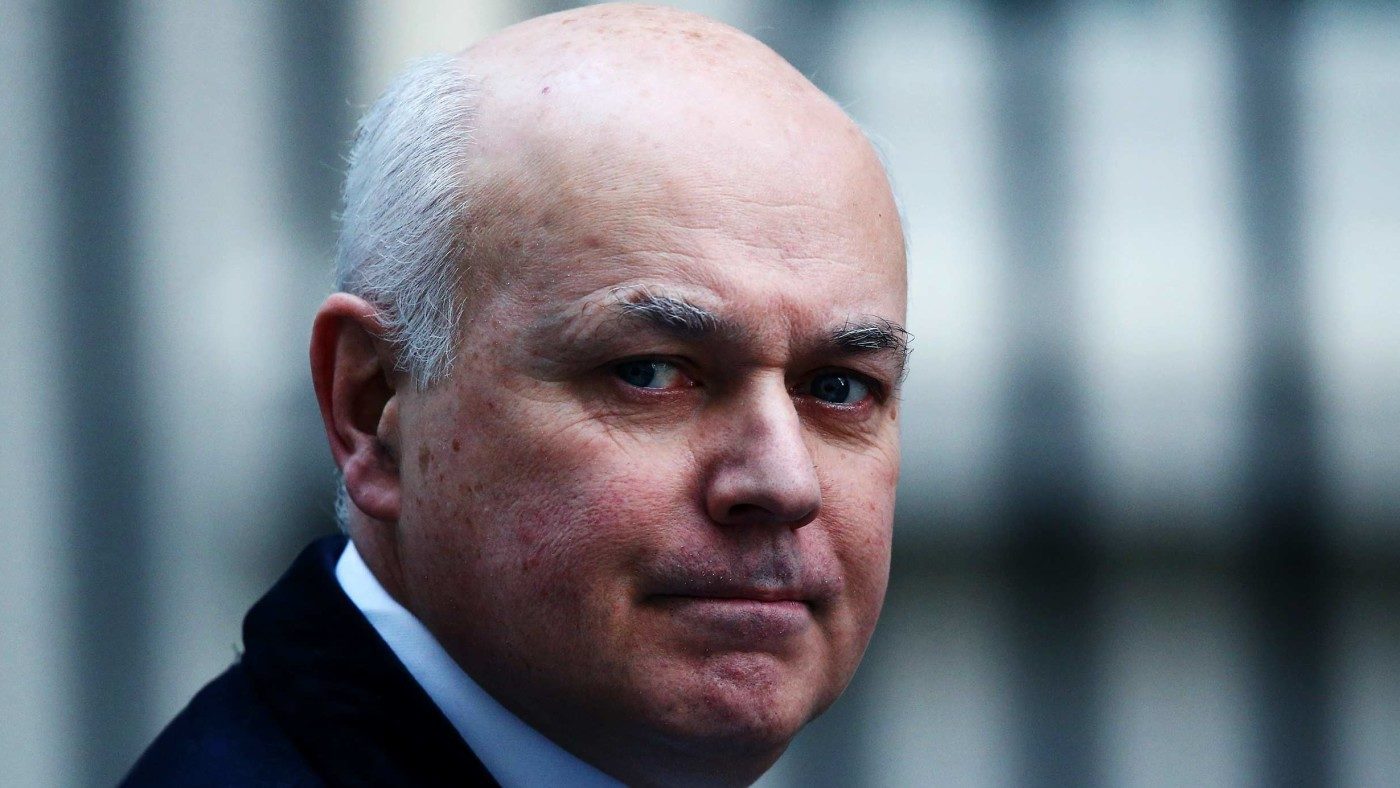The Conservative party, according to some commentators and a smattering of gleeful Labour politicians delighted to see it happening to someone else, is in crisis. Indeed, it is reckoned by many to be on the verge of civil war. A terrible chasm beckons, the result of ancient fault lines surrounding the issue of Europe. In reality, I doubt this is true.
Though the resignation of Iain Duncan Smith has been a blow to the government, it has not and will not affect the fortunes of David Cameron. I say this despite Duncan Smith’s having been a long-standing minister, and in spite of having been the public face of the government’s welfare reforms and therefore a useful whipping boy for its critics. Instead of worrying about the potential split in the party on the European issue, the Cameron faction are confident of winning the referendum. If anything, the battle lines being drawn in this way will make that particular campaign a little easier.
When Cameron decided to give his Cabinet a free hand on Europe, it was suggested that he was weak, that he lacked the control and the guts to tell the Eurosceptic members to vote with him. But now an essential member of the anti-European Union tribe has left the Cabinet, and apparently for reasons which are largely unconnected with that particular question.
Duncan Smith is now a voice in the wilderness, still disliked for his role in devising and implementing many unpopular policies; he will likely not be given much influence in the coming referendum campaign (at least if those advocating leaving the EU have their wits about them). After all, a Eurosceptic backbench MP is hardly a novelty, especially in the Conservative party, and Cameron has effectively neutralised the potential for this faction to make trouble by giving the expression of their dissenting views semi-official sanction. Weak it may have been, but in strategic terms it was not only obvious, but essential.
Meanwhile, George Osborne and Cameron can bring a new man into the Cabinet in Duncan Smith’s former role, paper over the cracks of the last Budget by making certain concessions and marking out changes of direction, and generally strengthen their collective hand.
The alienation of Boris Johnson, trapped on the back benches in the Commons and soon to leave City Hall, can be seen in a similar vein. He is a charismatic character and an effective communicator, but outside the core Conservative membership which comprises his most ardent support, Johnson is still seen to lack the fundamental qualities of seriousness and statesmanship which are vital to winning the nation’s confidence at large. And the Remain campaign will certainly be making use of this perceived lack of seriousness when talking of a ‘leap in the dark’ if the country votes to leave the EU.
In many ways Cameron and Osborne are further helped by the media notion of a Tory civil war, as though the infighting does look chaotic, things still appear peaceful in comparison with the Labour party under Jeremy Corbyn. In many ways, the apparent revolt of many Tories can be attributed, like the Donald Trump phenomenon, to an upswing in almost race-and-nation thinking among the sort of people Cameron and Osborne (and most of the British public) disdain. And much dedicated Eurosceptic talk in general – think of the use of the term ‘sovereignty’ – does little to excite and motivate those outside the tribe.
Admittedly, a great deal of the remarkably secure position Cameron and Osborne now enjoy is due more to luck than judgement; the very fact that Corbyn was elected in the first place represents another example of why Cameron is often considered to have led a particularly charmed life. The addition of one of his less charismatic former Cabinet colleagues to a roster including George Galloway and Nigel Farage is not going to give the Prime Minister sleepless nights. Intentional or not, it is remarkable how stable things are looking for Cameron, even now, when his party ought to be riven with disputes and anger as arguments that have continued for over a generation reach boiling point.
Rather than a disastrous time for Cameron and his allies, this month could well typify how the Prime Minister will win the coming referendum, and how his faction will weather the storms of in-fighting which have periodically ruined Tory chances of winning office in the past.


